Boerboel Summary
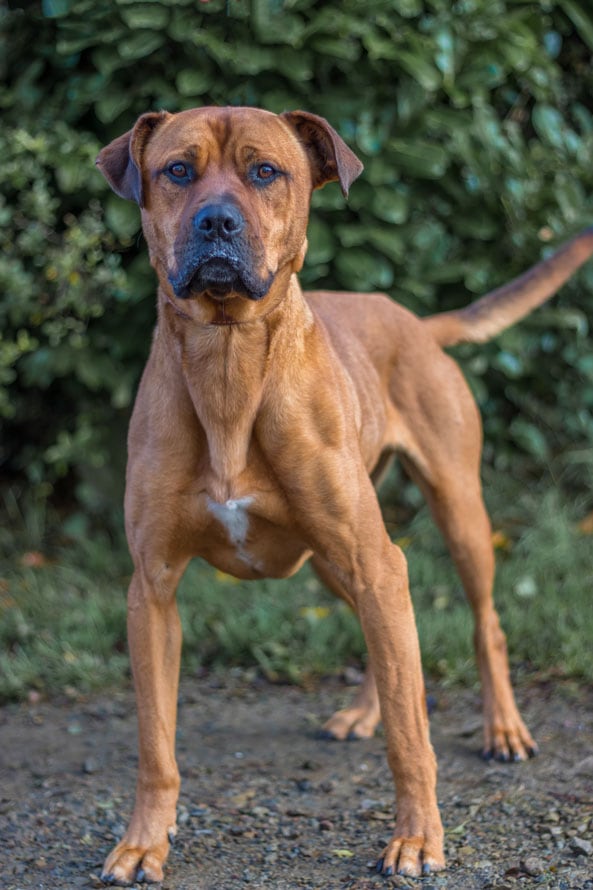
Boerboels are incredibly muscular, large dogs that are known for being great protectors and very loyal to their families.
©Wirestock/ via Getty Images
An intelligent and loyal dog that is known for its strong protective instinct, the Boerboel is a good pet for those who want an affectionate pet that will love their family fiercely. Boerboel growth occurs quickly over the first 2 years until they reach their adult size. It doesn’t always do well with other dogs, especially when it feels like its family or home turf is threatened. You can bring a new Boerboel into your home but it’s best to do so when they are puppies and able to fully integrate with their new pack. These dogs were originally bred to protect homesteads in South Africa from predators, a mentality that they bring to modern settings as well. Even though they can look physically intimidating (and back up that impression when they need to be tough), Boerboels make loving, loyal family pets.
Boerboels are mastiff dogs and are usually pretty large and imposing. They typically weigh between 150 and 200 pounds when fully grown. Females tend to be a bit smaller than males. They measure between 24 and 27 inches tall. They experience a major growth spurt as puppies, gaining as much as 10 or 15 pounds within a single month. This rapid growth continues through the first two years until they reach their full adult size.
Boerboel Growth and Weight Chart by Age
| Age | Weight |
| Birth | 3 to 5 pounds |
| 1 Month | 5 to 20 pounds |
| 6 Weeks | 10 to 25 pounds |
| 2 Months | 15 to 30 pounds |
| 3 Months | 30 to 45 pounds |
| 4 Months | 45 to 60 pounds |
| 5 Months | 65 to 80 pounds |
| 6 Months | 80 to 100 pounds |
| 7 Months | 90 to 115 pounds |
| 8 Months | 95 to 130 pounds |
| 9 Months | 100 to 140 pounds |
| 10 Months | 110 to 150 pounds |
| 11 Months | 120 to 165 pounds |
| 12 Months | 125 to 175 pounds |
| 2 Years | 150 to 200 pounds |
When Will My Boerboel Stop Growing?
Most larger breeds take longer to reach their fully grown size than smaller dogs. Boerboels are no exception. These massive dogs grow in both weight and height for the first year and a half of their lives. Boerboel growth tends to occur rapidly after they are born and continues through age 2. Some dogs will reach their adult size sooner and others will take longer to fully mature. Even those who reach their adult height early can put on extra weight, typically muscle, for a few months. In most cases, Boerboels stop growing between 18 months and 2 years of age.
How Big Will My Boerboel Be When It’s Fully Grown?

A fully grown Boerboel can be as large as 200 pounds.
©Natalia Fesiun/Shutterstock.com
According to the American Kennel Club, an ideal Boerboel is between 24 and 27 inches tall when measured at the shoulder. They weigh between 150 and 200 pounds. Female Boerboels can be slightly smaller, between 22 and 25 inches tall. The AKC notes that the body composition of a Boerboel is also important when evaluating an individual dog for show. Boerboels should be longer than they are tall.
When Should My Boerboel Be Spayed or Neutered?
Most veterinarians recommend waiting until between 12 months and 18 months to neuter or spay your dog. This is important because they are still growing up until this point. A change in their hormone levels, which happens with neutering and spaying, can impact the natural growth process. For larger dogs, including Boerboels, it’s best to wait a bit longer to get them neutered or spayed. If your dog has other health concerns, that can impact when they get neutered or spayed. Boerboel growth rates can vary, however, so it’s important to talk through any upcoming medical procedures with a vet who knows your dog. Talk to your vet for the most personalized recommendations for your pup.
When Should My Boerboel Be House Broken?
It’s best to begin training your new puppy early, including toilet training. A Boerboel is a large breed and teaching them how to behave and be safe is crucial to maintaining your sanity as a dog owner. Boerboels are very smart and trainable. Most pick up on bathroom cues quickly. You can start housebreaking your Boerboel puppy as soon as you bring them home.
When Should My Boerboel Stop Eating Puppy Food?
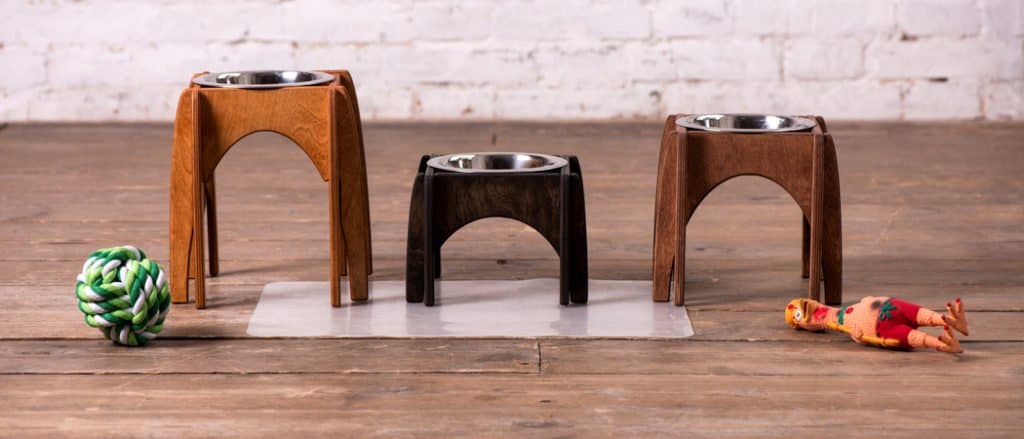
Puppy food has more calories and specialized nutrients that puppies need to keep up with their growth spurts until they eventually reach their adult size.
©Ivan Masiuk/Shutterstock.com
Puppy food is specially formulated to provide the nutrition that your growing Boerboel puppy needs. Look for large-breed puppy food and follow the recommended serving guidelines. You can also talk to your vet for recommendations based on your individual dog’s health and needs. Transition to adult dog food between 12 and 18 months. It’s best to keep your dog on puppy food, which typically has more calories, until they reach their adult height and weight.
When Will My Boerboel Start Losing Teeth?
Did you know that puppies lose their baby teeth just like young children? Around 12 weeks old, their baby teeth start to fall out and their adult teeth come in. This process happens pretty fast. By around 6 months old, most dogs have all of their adult teeth. You can provide puppy chew toys during this time to provide comfort and reduce destructive chewing behaviors.
When Should I Start Training My Boerboel?
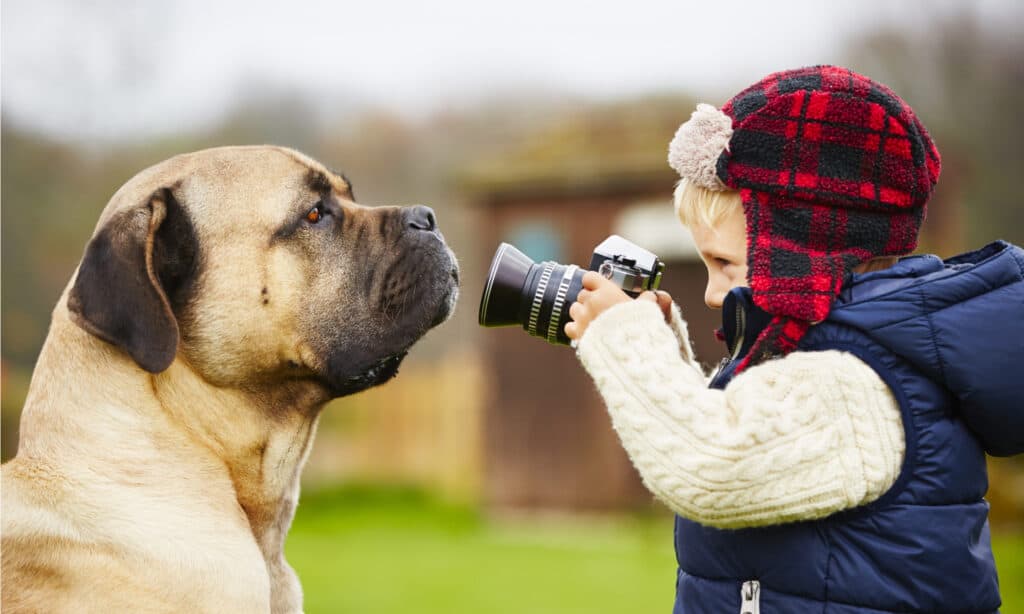
With the right training, Boerboels make excellent pets and loyal protectors.
©Jaromir Chalabala/Shutterstock.com
Training your puppy early can help you build a strong bond as well as reduce the likelihood of destructive behaviors, like chewing or excessive barking. Boerboels are highly intelligent and love to be rewarded with praise and positive reinforcement. These strategies can make training much more effective when working with Boerboels. They also like to please their owner so make sure that they have a strong bond (or are building a strong bond) with their trainer. These dogs don’t do as well with strangers, which they might perceive as a threat to their family. After all, they were bred to act as protectors in the remote wilderness of South Africa for homesteads there. Take advantage of this protective and loyal streak when training your Boerboel.
What Commands Should I Teach My Boerboel First?
“Come” is one of the most important commands to teach your new puppy. It can keep them safe if they are around aggressive dogs, get them to respond to you when needed, and help you take them to other places. This is one of the first commands to teach your Boerboel. “Drop it” can be helpful, especially if your Boerboel is very curious and likes to pick up new and unfamiliar objects or food. Some foods are dangerous for dogs. Being able to command your Boerboel to drop something potentially hazardous is important.
“Sit” and “stay” are two other commands that many dog owners start with because they are so helpful when working with your dog. Keep in mind that Boerboels are large and can be territorial and protective when around other dogs. “Heel” can redirect your protective Boerboel to your side, which can be helpful if they are starting to perceive something in your surroundings as a potential threat.
Pictures of Boerboels as Puppies

Boerboel puppies go through big growth spurts as they mature until they reach their adult size.
Pictures of Boerboel at 6 Months
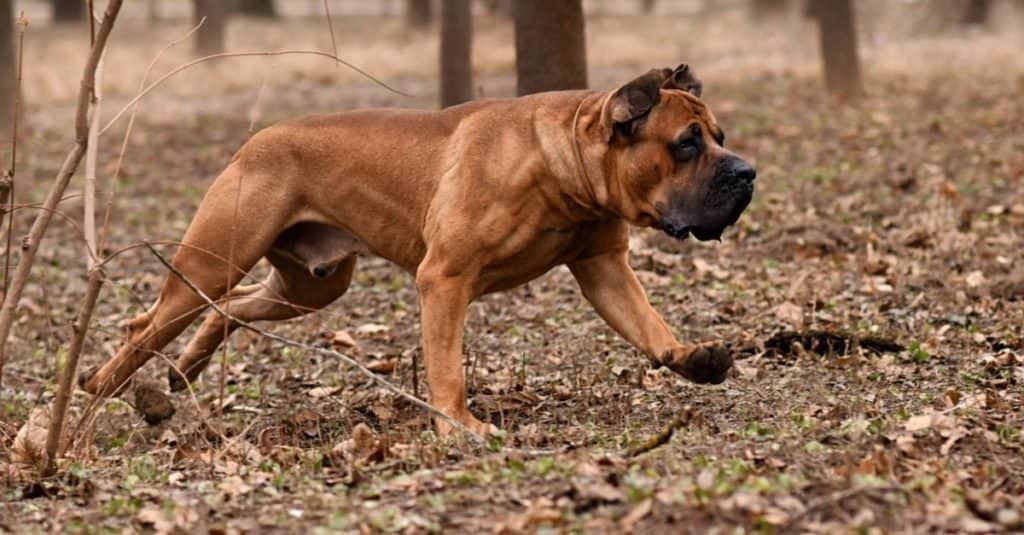
Although individual growth rate and size can vary, most Boerboels are between 80 and 100 pounds by the time they are 6 months old.
©Natalia Fesiun/Shutterstock.com
Pictures of Fully Grown Boerboels
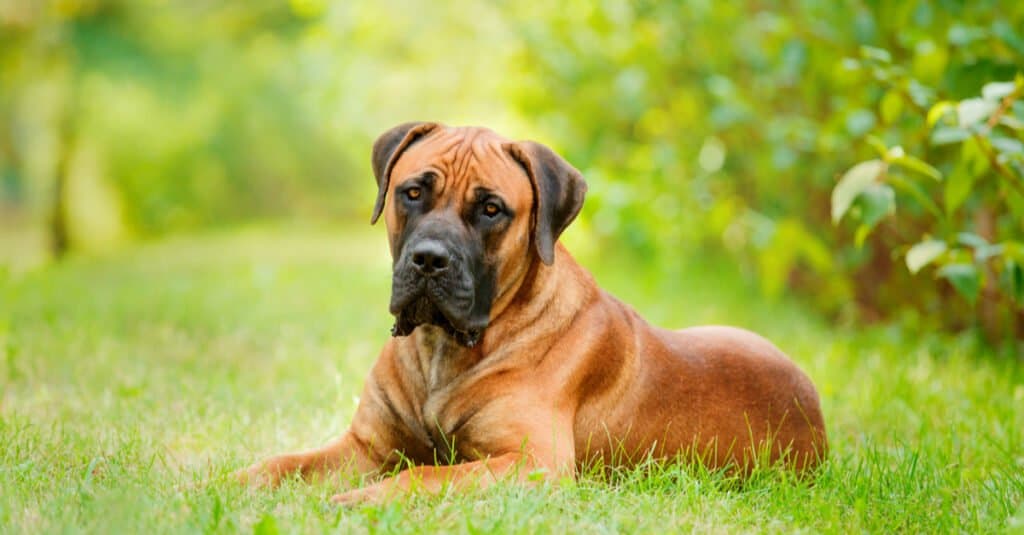
Adult Boerboels are usually between 150 and 200 pounds, with female dogs weighing a bit less than their male counterparts.
©Marina Plevako/Shutterstock.com
Other Dog Breeds Similar to Boerboels
The photo featured at the top of this post is © Natalia Fesiun/Shutterstock.com
Ready to discover the top 10 cutest dog breeds in the entire world?
How about the fastest dogs, the largest dogs and those that are -- quite frankly -- just the kindest dogs on the planet? Each day, AZ Animals sends out lists just like this to our thousands of email subscribers. And the best part? It's FREE. Join today by entering your email below.
Thank you for reading! Have some feedback for us? Contact the AZ Animals editorial team.






